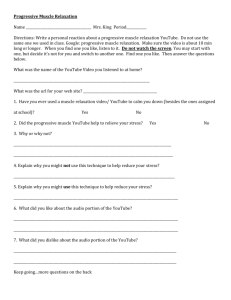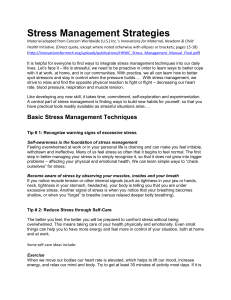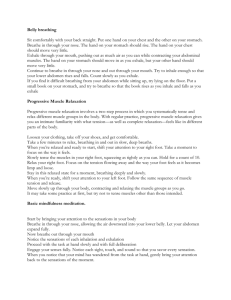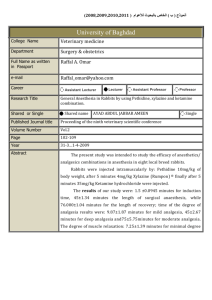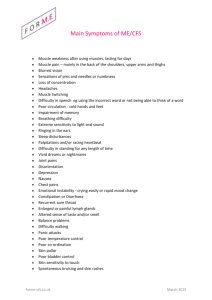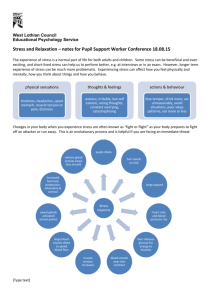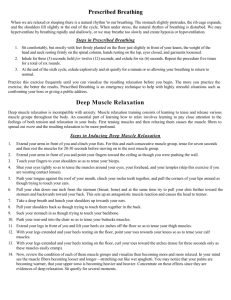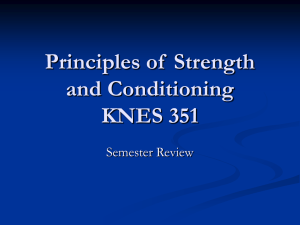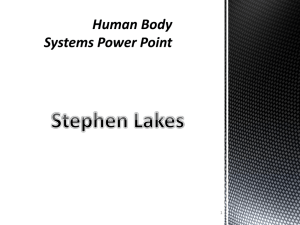Progressive muscle relaxation for stress relief
advertisement
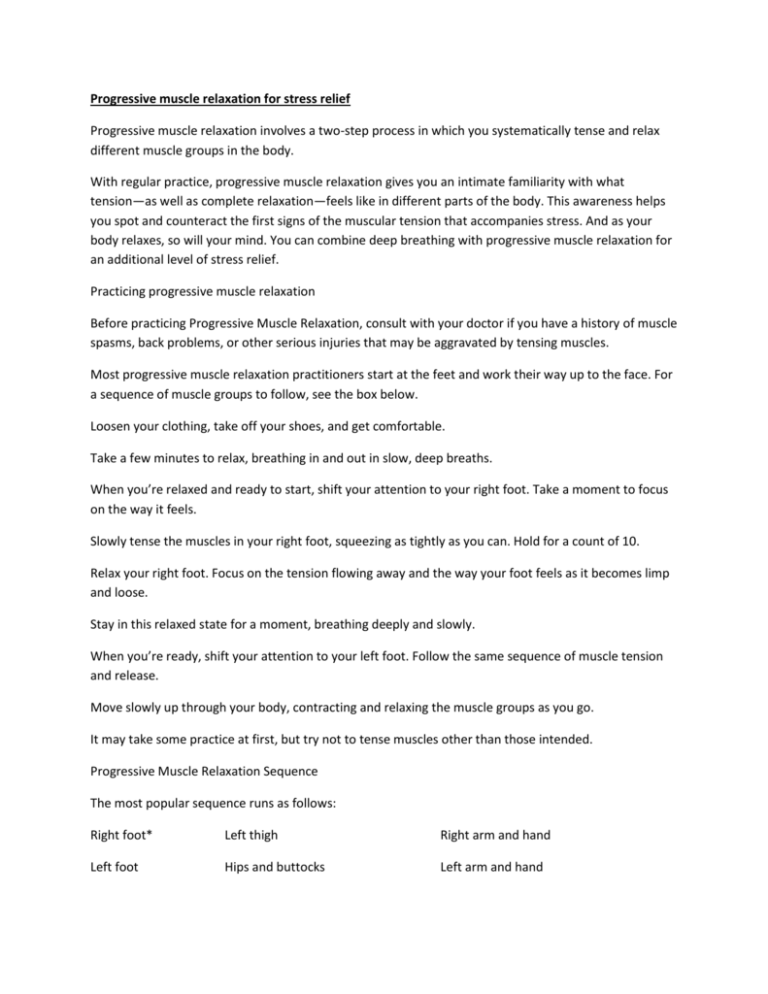
Progressive muscle relaxation for stress relief Progressive muscle relaxation involves a two-step process in which you systematically tense and relax different muscle groups in the body. With regular practice, progressive muscle relaxation gives you an intimate familiarity with what tension—as well as complete relaxation—feels like in different parts of the body. This awareness helps you spot and counteract the first signs of the muscular tension that accompanies stress. And as your body relaxes, so will your mind. You can combine deep breathing with progressive muscle relaxation for an additional level of stress relief. Practicing progressive muscle relaxation Before practicing Progressive Muscle Relaxation, consult with your doctor if you have a history of muscle spasms, back problems, or other serious injuries that may be aggravated by tensing muscles. Most progressive muscle relaxation practitioners start at the feet and work their way up to the face. For a sequence of muscle groups to follow, see the box below. Loosen your clothing, take off your shoes, and get comfortable. Take a few minutes to relax, breathing in and out in slow, deep breaths. When you’re relaxed and ready to start, shift your attention to your right foot. Take a moment to focus on the way it feels. Slowly tense the muscles in your right foot, squeezing as tightly as you can. Hold for a count of 10. Relax your right foot. Focus on the tension flowing away and the way your foot feels as it becomes limp and loose. Stay in this relaxed state for a moment, breathing deeply and slowly. When you’re ready, shift your attention to your left foot. Follow the same sequence of muscle tension and release. Move slowly up through your body, contracting and relaxing the muscle groups as you go. It may take some practice at first, but try not to tense muscles other than those intended. Progressive Muscle Relaxation Sequence The most popular sequence runs as follows: Right foot* Left thigh Right arm and hand Left foot Hips and buttocks Left arm and hand Right calf Stomach Neck and shoulders Left calf Chest Face Right thigh Back Body scan meditation for stress relief A body scan is similar to progressive muscle relaxation except, instead of tensing and relaxing muscles, you simply focus on the sensations in each part of your body. Practicing body scan meditation Lie on your back, legs uncrossed, arms relaxed at your sides, eyes open or closed. Focus on your breathing , allowing your stomach to rise as you inhale and fall as you exhale. Breathe deeply for about two minutes, until you start to feel comfortable and relaxed. Turn your focus to the toes of your right foot. Notice any sensations you feel while continuing to also focus on your breathing. Imagine each deep breath flowing to your toes. Remain focused on this area for one to two minutes. Move your focus to the sole of your right foot. Tune in to any sensations you feel in that part of your body and imagine each breath flowing from the sole of your foot. After one or two minutes, move your focus to your right ankle and repeat. Move to your calf, knee, thigh, hip, and then repeat the sequence for your left leg. From there, move up the torso, through the lower back and abdomen, the upper back and chest, and the shoulders. Pay close attention to any area of the body that causes you pain or discomfort. Move your focus to the fingers on your right hand and then move up to the wrist, forearm, elbow, upper arm, and shoulder. Repeat for your left arm. Then move through the neck and throat, and finally all the regions of your face, the back of the head, and the top of the head. Pay close attention to your jaw, chin, lips, tongue, nose, cheeks, eyes, forehead, temples and scalp. When you reach the very top of your head, let your breath reach out beyond your body and imagine yourself hovering above yourself. After completing the body scan, relax for a while in silence and stillness, noting how your body feels. Then open your eyes slowly. Take a moment to stretch, if necessary.

